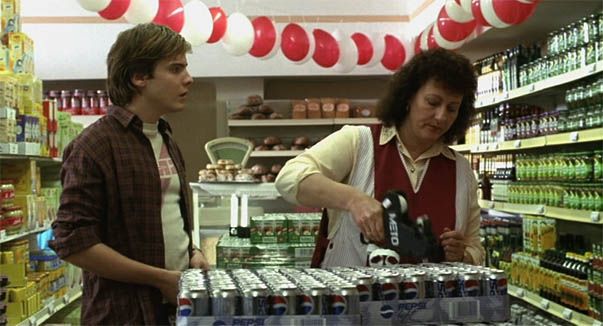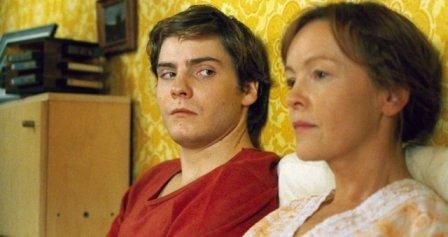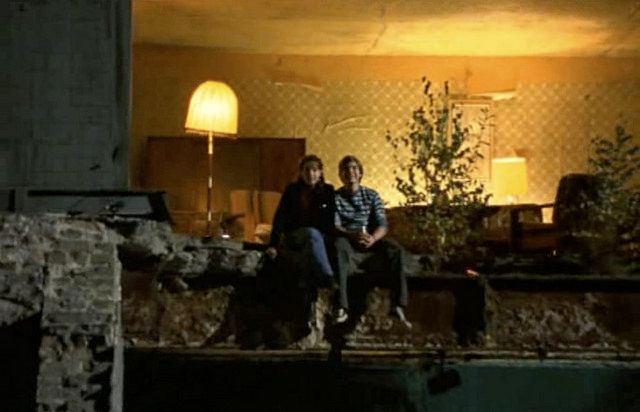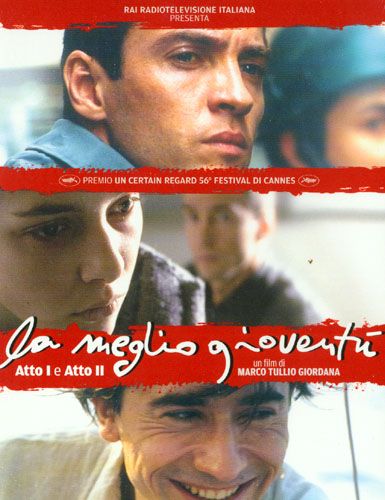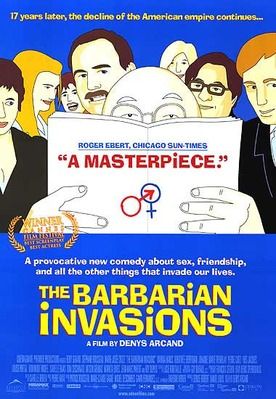Lost
in Translation
2003
Director: Sofia Coppola
Starring: Bill Murray, Scarlett
Johansson, Giovanni Ribisi
I
need to say this straight off the bat: I can’t write a normal review of Lost
in Translation. Expect precious
little of what’s to follow to be my typical attempts at any sort of analysis of
the filmmaking techniques, production design, or story symbolism. Apologies if that’s what you wanted.
Right.
On with it then.
I’ve
only seen Lost in Translation twice; once, in 2004 after it came out on
DVD, and just a few days ago for the 1001 Movies Blog Club. Despite the decade since I last saw it, I
vividly remember that initial experience.
It was late at night, I was a little tired, my
then-boyfriend-now-husband had gone to bed, and I sat down to watch this film
that my friend Dyami had been gushing over.
I really enjoyed it – I knew I would – but as it came to a close, I
remember being overcome by incredible emotion.
I remember sobbing my way through the final scenes, then continuing to
sob rather uncontrollably for at least another thirty minutes. Something in this film had touched a nerve, a
very raw nerve, that the lateness of the hour and my tiredness only
exacerbated. In seeing it for a second
time, that nerve was not quite as exposed, but still there nonetheless.
Bob
Harris (Murray) is a middle-aged washed up movie actor being overpaid to
promote whiskey in Tokyo, Japan. He
forgets his son’s birthday while his wife FedExes carpet samples to his hotel
room. Charlotte (Johansson) is a college
grad who majored in philosophy and now finds herself married to a photographer
(Ribisi) and without any idea what to do with her life now that she’s tagged
along with him to Tokyo. Both Bob and
Charlotte feel completely alienated by not only Tokyo but their lives, and this
is enough of a commonality for them to strike up an unlikely friendship.
Bill
Murray is so wonderful in this film, and I remember, at the time, that it was
such a BIG FREAKIN’ DEAL in the media.
Everyone, and I do mean everyone, was all “holy F*%@ Bill Murray can
actually act and express emotions and everything!” He was nominated for his one and only Oscar
for his role as Bob Harris, but something I’ve been thinking about is that no
one should have been THAT surprised.
Frankly, Murray’s filmography for the ten years prior to
Lost in Translation was building up to this, a perfectly seriocomic
role. In my opinion, it all starts with Groundhog
Day in 1993, then goes on to Ed Wood with Tim Burton in 1994,
then most significantly on to Rushmore in 1998 and The
Royal Tenenbaums in 2001, both with Wes Anderson. The fact that Murray was specifically
choosing work that defied his early slapstick routines (he also managed to be
in a Shakespeare movie before Lost in Translation) was
apparent. Since Lost in Translation, he
has continued his relationship with Wes Anderson, becoming in some ways a grand
duke of the indie film scene, and has also cultivated a relationship with Jim
Jarmusch of all people. I give Murray
all the credit in the world for clearly seeking divergent film roles, because
he is just wonderful when he tones down the stupid comedy and allows the
sadness to peek through. I’m not
surprised at all that a generation of younger filmmakers have wanted to use him
in their work.
I
don’t often write about it on my blog, but back in 2004, I was in a PhD program
doing biochemistry research. I was
utterly miserable, but I hadn’t yet realized I was miserable. (It would take another 18 months for me to
finally face the issue and leave the program, moving on to something that
DIDN’T take a jackhammer to my sense of self-worth.) Like Charlotte, I was in my early to
mid-twenties and I felt adrift. And that
night that I watched Lost in Translation for the first
time, this film was an enormous trigger that managed to convey some of the
hopelessness and lack of direction I was drowning in. Although I still could not completely admit
it to myself at the time, now with 20/20 hindsight I have no doubt that the
minor breakdown this film gave me was because I identified a bit too much with
the emotional message here. When I
watched it just a few days ago, the tears at the end were caused not by a
current sense of angst in my life, but of remembrance; recalling just how
emotionally draining and numbing those years in the lab were, recalling just
how pathetic I felt then, how utterly useless and ineffectual I thought I was
because my experiments never worked (not once, not ever, not even the goddamned
controls did what they were supposed to do), how much of a failure I thought
myself. Quite frankly, this film isn’t
the easiest thing in the world for me to watch, not because it’s bad or
horrific, but because it has a way of pulling all those old emotions out to
surface.
Which
is definitely a bit of a testament to the film, because I was working in a
biochemistry research lab and Charlotte was in Tokyo for a few weeks. Not exactly the same thing.
It’s
very difficult for me to be objective or analytical about this film. This is a much more subjective experience for
me, as I just watch this and feel. I
feel Charlotte’s depression as she tries to tell her friend she doesn’t know
who she married only to have the friend blow her off. I have also had a friend during this time in
my life who was a bit like Bob Harris, someone who, although a generation apart
from me, I connected with and who I got along extraordinarily well with and who
made me forget, albeit for short periods of time, how much sadness I was really
hiding. Although an argument can be
made, depending on your frame of mind, that Coppola pushes the relationship
between Bob and Charlotte to the brink of sexual tension, and I honestly do not
think that I ever had *that* kind of relationship with my friend, I relate yet again
to understanding the feeling of respite caused by an unlikely friend.
This
movie. This movie was my early to mid-twenties. The deep seated denial that I was sad (I
wasn’t supposed to be sad, I was in biochemistry PhD program for crying out
loud), the feelings of hopelessness and uselessness that almost consumed me, Lost
in Translation brings it out in a beautiful, sadly poignant way. On the surface, my story is not at all like
Charlotte’s, but Sofia Coppola knew what she was doing, knew that her
particular story of cultural alienation could really strike far deeper.
This
is not a movie I can watch lightly or “have on in the background.” I’m in a much better place now than I was ten
years ago, but the experience in the lab was a bit emotionally scarring and I
still struggle with some of those feelings of loss of self-worth (and I have a
feeling I will always feel like something of a failure). Lost in Translation is a film that
reminds me of that phase of my life, for better or for worse, and while it
makes me happy to know I’m not there anymore, this movie has a way of reminding
me just how painful those years were.
For
the record, I think this movie is awesome.
It just strikes a bit too close to home for me to watch it with any
regularity.
Arbitrary
Rating: 9/10, and apologies if you actually wanted me to talk about the movie
rather than whinging on about myself.




